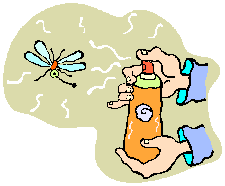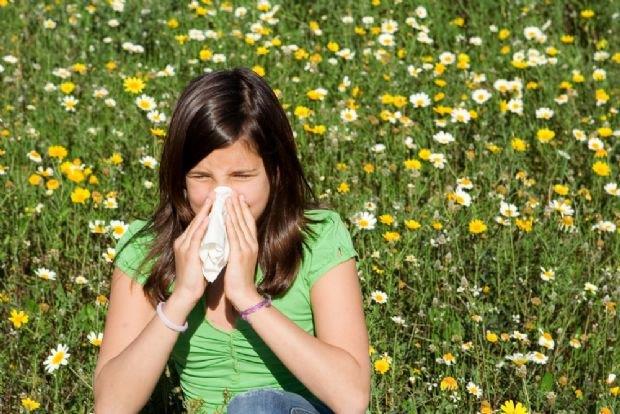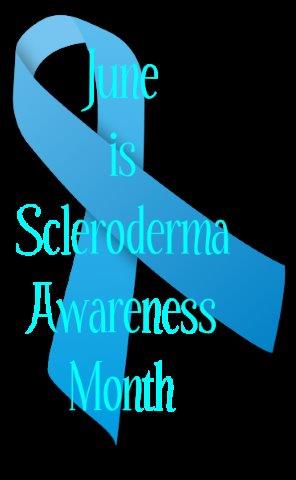Are You a Mosquito Magnet?
June 29th, 2016 Summertime means it is open season for mosquitoes! While some people aren't as effected by these pesky insects, there are others who always seem to be a mosquito target.
Summertime means it is open season for mosquitoes! While some people aren't as effected by these pesky insects, there are others who always seem to be a mosquito target.
Mosquito Magnets
One in about 10 people are highly attractive to mosquitoes. It's not dinner they're after, female mosquitoes (males don't bite people) need human blood to develop fertile eggs. But what is so attractive about these people?
- Acids: Mosquitoes target people who produce excess amounts of certain acids. Lactic acid (given off while exercising), acetone (a chemical released in your breath) and estradiol (a breakdown product of estrogen) can all be released at varying concentrations. These substances can trigger mosquitoes sense of smell, leaving them to land on unsuspecting victims.
- Carbon dioxide: Any type of carbon dioxide is attractive, even over a long-distance. Larger people tend to give off more carbon dioxide, which is why mosquitoes typically prefer munching on adults to small children.
- Cholesterol: People with high concentrations of steroids or cholesterol on their skin's surface attract mosquitoes. That doesn't necessarily mean that mosquitoes attack people with higher overall cholesterol. These people may be more efficient in processing cholesterol, the byproducts of which remain on the skin's surface.
- Genetics: This accounts for 85 percent of a person's susceptibility to mosquito bites.
- Heat: Before mosquitoes can take a bite they have to find an area of the body where the blood is close to the surface. Common areas include: forehead, wrist, elbows, and neck. People who are overheated or who just finished working out will have blood closer to the surface of the skin. Mosquitoes use heat to determine where blood is closest to the surface.
But with more than 350 compounds isolated from odors produced by human skin, researchers have barely scratched the surface behind a mosquitoes' preference to certain people.
Prevent Bites
While typically mosquito bites are just irritating, it can become more serious. To prevent bites:
- Avoid wearing dark denim or all black outfits. Some mosquitoes are visual hunters that search you out by looking for signs of life against the horizon.
- Regularly remove standing water near your home (i.e. gutters, pool covers, pet's water dishes, etc.)
- Use insect repellent containing DEET, picaridin or IR3535. Some oil of lemon eucalyptus or para-methane-diol products also provide protection.
- Wear long sleeves, long pants and socks when outdoors
Keeping mosquitoes at bay can help prevent any serious illness that can be received through a mosquito bite.
What IAA has to Say
It may be hard to stop yourself from becoming a mosquito magnet, but Insurance Administrator of America wants you to protect yourself. Just think of IAA as your third-party mosquito whisperer, giving you a heads up on those flying pests. Remember, with IAA one call does it all.
Interested in reading more on these topics? Click here and here!
Reduce Your Summer Allergy Symptoms
June 22nd, 2016 Summer is here and so are those summer allergens. Allergy season does not end in spring, it can continue on through the summer.
Summer is here and so are those summer allergens. Allergy season does not end in spring, it can continue on through the summer.
Summer Allergens
Trees are usually done with their pollen fest by late spring. That leaves grasses and weeds to trigger summer allergies. The type of plant to blame varies by location, but ragweed is one of the common allergy triggers. It can travel for hundreds of miles on the wind. So even if it doesn't grow where you live, it can still make you feel bad if you are allergic to it.
Summer air pollution can trigger your allergy symptoms as well. One of the most common is ozone. It's created in the atmosphere from a mix of sunlight and chemicals from car exhaust.
Another summer allergen are microscopic insects called dust mites, which peak during the summer. They thrive in warm, humid temperatures and nest in beds, fabric and carpets. Their residue can get into the air and set off your allergies.
Allergy symptoms can include:
- Coughing
- Dark circles under the eyes
- Itchy eyes and nose
- Runny nose
- Sneezing
- Watery eyes
It can be a long summer if you are not careful to avoid your allergy triggers.
Reduce Your Allergy Symptoms
To reduce your exposure to the things that trigger your allergy symptoms:
- Avoid outdoor activity in the morning when pollen counts are highest
- Clean air filters in your home often. Also, clean bookshelves, vents and other places where pollen collects.
- Close doors and windows at night or any other time when pollen counts are high
- Delegate lawn mowing, weed pulling and other gardening chores that stir up allergens
- Don't hang laundry outside--pollen can stick to sheets and towels
- Keep indoor air dry with a dehumidifier
- Remove clothes you've worn outside and shower to rinse pollen from your skin and hair
- Stay indoors on dry, windy days. The best time to go outside is after a good rain, which helps clear pollen from the air.
- Use the air conditioning in your house and car
- Vacuum often and wear a mask. The process can kick up pollen, mold and dust trapped in your carpets.
- Wash bedding in hot water to get rid of dust mites and other allergens
There is no miracle product that can eliminate all allergens, but you can try and implement some tactics to stop allergens from coming into your home.
What IAA has to Say
No one wants to spend their summer with a runny nose. That's why Insurance Administrator of America encourages you to reduce your expose to your allergy triggers. Don't let your summer become a bummer do to summer allergies! Remember, with IAA one call does it all.
Interested in reading more on this topic? Click here!
Have a Healthy Summer!
June 15th, 2016
Avoid Foodborne Illness
Warm weather means starting up the barbeque. One thing you don't want this summer is a foodborne illness. Take these steps to keep germs at bay:
- Wash your hands before handling food.
- When taking food off the grill, do not put cooked food items back on the same plate that previously held raw food.
- Use a meat thermometer to ensure that food reaches a safe internal temperature.
- Never let raw meat, cooked food or cut fresh fruit or vegetables sit at room temperature more than two hours before putting them in the cooler or refrigerator.
Don't let your picnic and/or barbeque be ruined due to food poisoning.
Stay Cool in the Heat
Heat related illnesses claim the lives of hundreds of people each year. Heat related illness happens when the body's temperature control system is overloaded. Take these precautions when working or playing outside during the hot summer months:
- Drink plenty of water or other non-alcoholic beverages
- Reduce strenuous activities or do them during cooler parts of the day
- Wear lightweight, loose-fitting clothing that is light in color
For parents, it is important to remember not to wait until a child says he/she is thirsty before offering fluids. Be sure to provide plenty of fluids before going outside while out in the heat and afterward.
Don't Get Hit by the Sun
Besides staying cool in the heat, it is also important to try to avoid getting burned by the sun:
- Cover up with clothing to protect exposed skin. A long-sleeved shirt and long pants are best.
- Grab shades that wrap around and block as close to 100% of both UVA and UVB rays as possible
- Seek shade especially during midday hours (10 am to 4 pm) when UV rays are strongest and do the most damage
- Wear a hat with a wide-brim to shade the face, head, ears, and neck
While you should apply sunscreen every day of the year, it's even more important during summer when the days are longer, the sun is stronger and it's easier to spend more time outdoors. When choosing a sunscreen be sure to read the label before you buy:
- Choose a sunscreen with "broad spectrum" protection. Sunscreens with this label protect against both UVA and UVB rays. All sunscreens protect against UVB rays, but UVA rays contribute to skin cancer and premature aging.
- Make sure your sunscreen has a sun protection factor (SPF) of 30 or higher. Higher SPF numbers do mean more protection, but the higher you go, the smaller the difference becomes.
- Water resistant does not mean waterproof: No sunscreens are waterproof or sweat proof.
Stay Safe While Swimming
Swimming is a great summer activity-just make to put safety first:
- Avoid swallowing pool water or even getting it in your mouth
- Drowning is the leading cause of injury death (according to the Centers for Disease Control) for young children ages one to four, and three children die every day as a result of drowning.
- Keep an eye on children at all times. Kids can drown in seconds and in silence.
- Never swim alone or in unsupervised locations. Teach children to always swim with a buddy.
Having fun in the water is one of the best parts of summer, just be safe!
What IAA has to Say
Who doesn't love summer and the fun it brings? Insurance Administrator of America just wants you to have a healthy and safe summer! Remember, with IAA one call does it all.
Interested in reading more on this topic? Click here!
June is National Scleroderma Awareness Month
June 8th, 2016 Scleroderma is a group of diseases that affect the connective tissue in the body. The tissue supports your skin and internal organs. Scleroderma involves tissue that gets hard or thick. It can also cause swelling or pain in the muscles and joints.
Scleroderma is a group of diseases that affect the connective tissue in the body. The tissue supports your skin and internal organs. Scleroderma involves tissue that gets hard or thick. It can also cause swelling or pain in the muscles and joints.
Types of Scleroderma
Scleroderma is generally classified as an autoimmune rheumatic disease. The main types of scleroderma are called localized and systemic. Localized scleroderma is when the disease affects only certain parts of the body. Systemic scleroderma can affect the whole body. Localized scleroderma often only affects skin tissues. It does not harm major organs. It may get better or go away without help. Systemic scleroderma affects the skin, tissues under it, blood vessels, and major organs.
There are different categories of localized scleroderma:
- Linear scleroderma: A form of localized scleroderma which frequently starts as a streak or line of hardened waxy skin on an arm or leg, or on the forehead. Sometimes it forms a long crease on the head or neck referred to as an en coup de sabre because it resembles a saber or sword wound. Linear scleroderma tends to involve deeper layers of the skin as well as surface layers, and sometimes affects the motion of the joints, which lie underneath.
- Morphea: A form of localized scleroderma characterized by waxy patches on the skin of varying sizes, shapes and color. The skin over the patches may thicken, patches may enlarge or shrink, and often may disappear spontaneously.
Localized scleroderma is more common in children whereas systemic scleroderma is more common in adults.
Signs and Symptoms
Scleroderma results from an overproduction and accumulation of collagen in body tissues. Collagen is a fibrous type of protein that makes up your body's connective tissues, including your skin. Although doctors are not sure what prompts this abnormal collagen production, the body's immune system appears to play a role. For unknown reasons, the immune system turns against the body, producing inflammation and overproduction of collagen.
Scleroderma's signs and symptoms vary depending on which structures are affected:
- Digestive system: Some people with scleroderma may have problems absorbing nutrients if their intestinal muscles aren't moving food properly through the intestines.
- Dry eyes or mouth
- Fingers or toes: One of the earliest signs of scleroderma is an exaggerated response to cold temperatures or emotional distress, which can cause numbness, pain or color changes in the fingers or toes.
- Heartburn
- Muscle weakness
- Painful or swollen joints
- Puffy or swollen or painful fingers and/or toes
- Shortness of breath
- Skin: Nearly everyone who has scleroderma experiences a hardening and tightening of patches of skin. These patches may be shaped like ovals or straight lines. The number, location and size of the patches vary by type of scleroderma. Skin may appear shiny because it is so tight and movement of the affected area may be restricted.
- Ulcers or sores on the fingertips
- Weight loss
Scleroderma is more common in women than men.
What IAA has to Say
Insurance Administrator of America wants to make you aware of scleroderma. Help support National Scleroderma Awareness Month by forwarding this blog post on to friends and colleagues. Remember, with IAA one call does it all.
Like this blog post? Let IAA know by going to our Facebook page and clickng the Like button!
Listeria Outbreak Calls for Mass Recall
June 1st, 2016 A food packaging company in Washington state has expanded a voluntary recall, which at one time included only 11 products. Now it includes 360 different organic and non-organic frozen fruits and vegetables that may be contaminated with listeria monocytogenes bacteria.
A food packaging company in Washington state has expanded a voluntary recall, which at one time included only 11 products. Now it includes 360 different organic and non-organic frozen fruits and vegetables that may be contaminated with listeria monocytogenes bacteria.
Contaminated Frozen Fruits and Vegetables
The recall began on April 23rd, but was significantly expanded on May 2nd. The products in question are frozen fruits and vegetables from 42 different brands that were packaged at CRF Frozen Foods of Pasco, Washington, and sold at popular grocery stores such as Trader Joe's and Costco in all 50 states.
The Food and Drug Administration (FDA) released a full list of the recalled products on its website, which includes organic and non-organic:
- Blueberries
- Broccoli
- Butternut squash
- Carrots
- Cherries
- Edamame
- Green beans
- Italian beans
- Kale
- Leeks
- Lima beans
- Onions
- Peaches
- Peas
- Raspberries
- Spinach
- Strawberries
The FDA urges consumers not to eat any of the recalled products and to check their homes for the recalled foods.
Signs and Symptoms of Listeria
Listeria monocytogenes is commonly found in soil and water, according to the Centers for Disease Control (CDC). Animals can carry the bacteria without appearing ill and can contaminate foods of animal origin, such as meat and dairy products. When listeria bacteria get into a food processing factory, they can live for years, sometimes contaminating products.
Listeria is a serious infection caused by consuming food contaminated with the listeria monocytogenes bacteria and primarily affects the elderly, newborns, adults with compromised immune systems, and pregnant women, according to the CDC.
Symptoms of listeria can include:
- Diarrhea
- Fever
- Muscle aches
- Nausea
Symptoms may begin a few days after you've eaten contaminated food, but it may take as long as two months before the first signs and symptoms begin.
Humans typically are infected by consuming:
- Certain food products such as soft cheeses, hot dogs and deli meats that have been contaminated after processing
- Infected animal meat
- Raw vegetables that have been contaminated from the soil or from contaminated manure used as fertilizer
- Unpasteurized milk or foods made with unpasteurized milk
If left untreated, listeria can be deadly.
What IAA has to Say
Insurance Administrator of America wants to make you aware of what's going on in the world of health. Check to make sure your refrigerator doesn't contain any of the recalled products. Just a few minutes of your time can help you ensure that your family will not become sick. Just think of IAA as your third party health news resource, keeping you in the loop!
Like this blog post? Let IAA know by going to our Facebook page and clicking the Like button!
